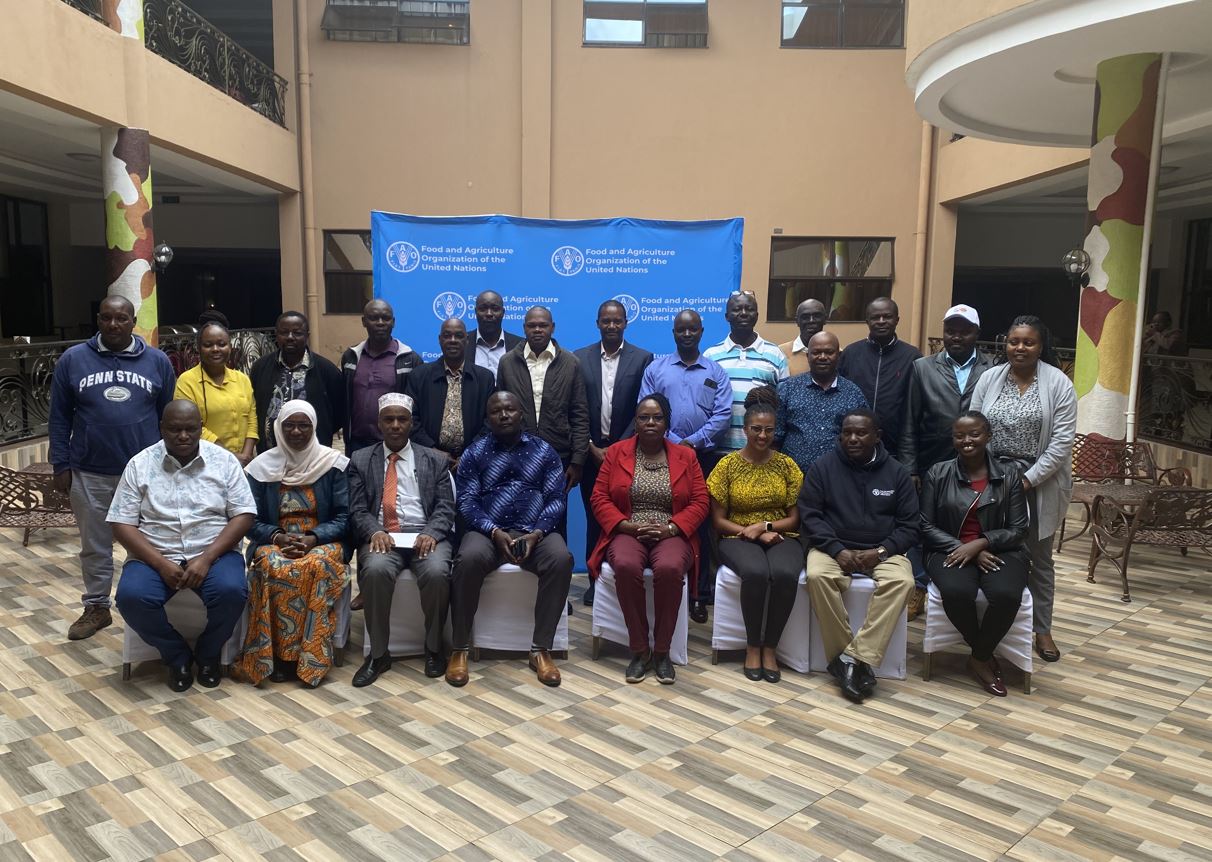A collaborative push for climate action: Aligning livestock policies with nationally determined contributions in Kenya
Kenya made great steps forward to tackle climate change through livestock.

©FAO/Thecla Mutia
Aligning livestock policies with the nationally determined contributions (NDCs) is crucial for steering Kenya towards robust climate action. Given the significance of the livestock sector in the economy, Kenya's efforts in mitigating climate change largely depend on this alignment. However, ensuring this synergy is a complex process that necessitates systematic review and strategic planning.
Recognizing the crucial role of livestock policies in driving robust climate action, the Food and Agriculture Organization of the United Nations (FAO) and the State Department for Livestock Development of the Ministry of Agriculture and Livestock Development of Kenya initiated a vital stocktaking exercise. In May 2023, FAO and the ministry organized a national workshop with livestock and climate stakeholders in the country, including representatives of the government, private sector, producer organizations, and academia. During the event, participants examined national livestock policies, and identified gaps and challenges to align them with Kenya's NDCs. The workshop was a great opportunity for livestock stakeholders to discuss new strategic actions to strengthen livestock contribution to national climate goals.
Analyzing Kenya's NDC policy across livestock value chains
A comprehensive analysis was conducted to evaluate the NDC policy across five primary livestock value chains in Kenya, namely beef, dairy, small ruminants, poultry, and other species, including camels, donkeys, pigs, and apiculture bees. The findings indicated that most of these value chains align with Kenya's NDCs, national adaptation plans, and national climate change action plans as outlined in the Kenya Climate Smart Agriculture Strategy 2017-2026, the Kenya Climate Smart Implementation Framework 2018 – 2027, and the Kenya Climate Smart Agriculture Monitoring and Evaluation Framework 2021.
However, despite this alignment, the study identified several challenges and opportunities for improving Kenya’s climate action through the livestock sector. During the workshop, participants highlighted key issues such as limited availability of national greenhouse gas emissions data for certain value chains, lack of policy implementation at the national and county levels, and inadequate institutionalized Monitoring, Reporting and Verification (MRVs) systems. Furthermore, there is a pressing need for significant improvements in existing monitoring and evaluation tools, as well as the reporting of climate action within the livestock sub-sector.
Recommendations for enhanced climate action
In response to the climate change challenges in Kenya's livestock sub-sector, the recent workshop produced several key recommendations. One significant proposal is to establish clear targets for this sector within Kenya's NDCs. This measure aims to enhance the monitoring of progress and ensure a more effective tracking system. Another recommendation is the implementation of a Monitoring, Reporting, and Verification (MRV) system, which would harmonize the monitoring, reporting, and verification of data at both the national and county levels. Supported by new reporting tools, this system would help consolidate climate action efforts in all areas of the livestock sector, leading to improved reporting accuracy and data reliability. Collectively, these initiatives are expected to considerably strengthen Kenya's efforts to combat climate change.
Funded by the Climate and Clean Air Coalition, this national workshop was jointly organized by FAO and the State Department for Livestock Development of the Ministry of Agriculture and Livestock Development of Kenya, and took place in Naivasha, Kenya from 8 to 11 May 2023.
